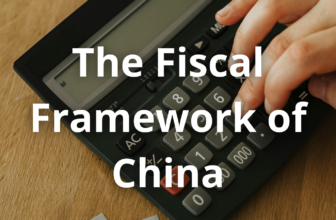
In any democratic society, the relationship between citizens and their government is built on mutual responsibility and trust. One of the most tangible expressions of this relationship is the system through which public revenue is collected and utilized. As a politician, my aim is to clarify the essential role that taxation plays in shaping our nation’s future, promoting fairness, and ensuring sustainable development.
Read also: Financial Literacy and Taxation
The Role of Public Revenue
Public revenue serves as the backbone of governmental operations, funding a wide range of services that are vital to the functioning and well-being of society. These services include education, healthcare, infrastructure, national defense, and social welfare programs. Without a robust and efficient system for generating this revenue, the government would be unable to meet the needs of its citizens or invest in the future.
Education and Healthcare: Public schools and universities rely heavily on government funding to provide quality education to all, regardless of socio-economic background. Similarly, public healthcare systems ensure that every citizen has access to medical services, fostering a healthier and more productive population.
Infrastructure: Roads, bridges, public transit, and utilities are essential for economic activity and quality of life. Public investment in infrastructure supports commerce, reduces transportation costs, and improves access to services and opportunities.
National Defense: Ensuring the security and stability of our nation is a primary responsibility of the government. Adequate funding for defense and law enforcement is crucial for maintaining peace and protecting our citizens.
Social Welfare: Programs such as unemployment benefits, food assistance, and housing subsidies provide a safety net for the most vulnerable members of society. These programs are essential for reducing poverty and promoting social equity.
Principles of Fair Taxation
A fair and effective tax system is based on principles that promote equity, efficiency, and simplicity. As a politician, I believe these principles are fundamental to gaining public trust and ensuring compliance.
Equity: Fairness in taxation means that individuals and businesses contribute to public revenue in proportion to their ability to pay. Progressive tax systems, where higher incomes are taxed at higher rates, are designed to ensure that those who benefit the most from the economy contribute their fair share. This approach helps to reduce income inequality and promote social cohesion.
Efficiency: An efficient tax system raises the necessary revenue without imposing excessive burdens on taxpayers or distorting economic behavior. This means minimizing compliance costs and avoiding tax policies that discourage investment or work effort.
Simplicity: The tax system should be straightforward and transparent, making it easy for taxpayers to understand their obligations and for the government to administer. Complexity and ambiguity can lead to confusion, errors, and non-compliance, undermining the system’s effectiveness.

The Impact on Individuals and Businesses
Tax policies have far-reaching implications for both individuals and businesses, influencing economic decisions and shaping financial outcomes.
For Individuals: Personal income tax is a major component of the tax system, affecting disposable income and spending power. Understanding tax obligations and opportunities for deductions or credits is crucial for effective financial planning. Additionally, taxes on property, sales, and investments can significantly impact household budgets and investment choices.
For Businesses: Corporate taxes affect business profitability and investment decisions. Tax policies that incentivize research and development, capital investment, and job creation can stimulate economic growth and innovation. Conversely, high tax burdens or complex regulations can deter investment and hinder business expansion.
Strategies for Effective Tax Policy
Crafting effective tax policy requires a balanced approach that considers the needs of the economy, the goals of social equity, and the principles of good governance. Here are some strategies that I advocate as a politician:
Broadening the Tax Base: Expanding the tax base by reducing exemptions and closing loopholes can increase revenue without raising tax rates. This approach ensures that all entities contribute their fair share and reduces the reliance on a narrow group of taxpayers.
Progressive Taxation: Implementing progressive tax rates for both individuals and corporations ensures that those with greater financial resources contribute more to public revenue. This helps to reduce income inequality and fund essential public services.
Incentives for Economic Growth: Tax incentives for investment in key areas such as technology, renewable energy, and infrastructure can drive economic development and create jobs. These incentives should be carefully designed to achieve specific policy goals without creating undue complexity or favoritism.
Tax Compliance and Enforcement: Ensuring high levels of compliance through effective enforcement and taxpayer education is crucial for maintaining the integrity of the tax system. Simplifying tax filing processes and providing clear guidance can help improve compliance rates.
International Cooperation: In a globalized economy, international cooperation on tax matters is essential. Addressing issues such as tax evasion, profit shifting, and digital taxation requires coordinated efforts among nations to create a fair and effective global tax system.

Contemporary Issues and Challenges
The landscape of taxation is continually evolving, presenting new challenges and opportunities for policymakers. Some of the most pressing contemporary issues include:
Digital Economy: The rise of digital businesses and the gig economy has outpaced traditional tax systems, leading to challenges in capturing revenue from online transactions and cross-border digital services. Developing new frameworks for taxing the digital economy is a priority for many governments.
Climate Change: Environmental taxes, such as carbon taxes, are increasingly being used to address climate change. These taxes aim to reduce greenhouse gas emissions by making polluting activities more expensive, encouraging businesses and individuals to adopt greener practices.
Wealth Inequality: Growing wealth inequality has sparked debates about the need for taxes on wealth, inheritance, and financial transactions. These taxes aim to address disparities in wealth distribution and generate revenue for social programs.
Tax Reform: Periodic tax reform is necessary to adapt to changing economic conditions and societal needs. Reforms can simplify the tax code, improve compliance, and make the system more equitable and efficient.
Conclusion
As a politician, my goal is to advocate for a tax system that is fair, efficient, and transparent. By understanding the critical role that taxation plays in funding public services and promoting social equity, we can build a stronger and more resilient nation. Effective tax policy requires continuous evaluation and adaptation to meet the evolving needs of society and the economy.
Through informed debate and collaborative policymaking, we can create a tax system that not only generates the necessary revenue for our government but also supports economic growth, reduces inequality, and enhances the quality of life for all citizens. By fostering a culture of compliance and transparency, we can ensure that our tax system earns the trust and cooperation of the public, paving the way for a prosperous and equitable future.






